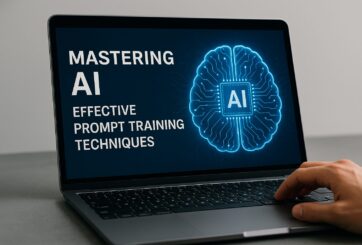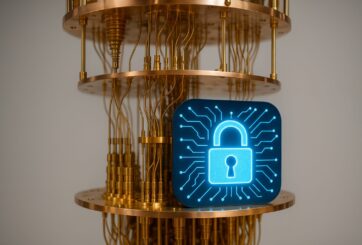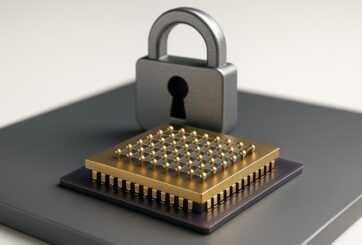

… with digital twin utilizing 5G technology.
5G technology is intended to accelerate data transmission, therefore it is of interest for industry. For example, it could be used to centralize the control of several machines at the same time. A team of researchers at the Technische Universität Kaiserslautern (TUK) is working on making the technology ready for application in manufacturing. For this purpose, a digital twin is being used to control a machine in real time. At the Hannover Messe, the team will present its project at the research stand of the state of Rhineland-Palatinate (Hall 2, Stand B46) from May 30 to June 3.
In order to digitize industrial production, high-performance communication technology is needed. In particular, 5G technology can be the basis for industrial connectivity, as data can be transmitted faster and more efficiently and machines can be Interconnected better compared to other industrial communication technologies. At TU Kaiserslautern, the team from the Institute for Manufacturing Technology and Production Systems is working on making this technology ready for manufacturing. “Usually, there is a computer or a corresponding control unit on every machine in a shopfloor, which can be used to control the respective machine,” says Jan Mertes, a research engineer at the institute. “We want to centralize this control and offload it to a high-performance computer, a so-called edge server.” This computer can be located anywhere on site of the manufacturer.
To transmit the machine’s data quickly and smoothly, 5G technology is needed. “5G enables very low latencies, i.e. a very short delay time for communication, while providing high data rates and reliability,” says Mertes, who is currently investigating how 5G can utilized for manufacturing as part of his doctoral research. “For instance, we have to examine the influence from other machines on communication interferences,” Mertes adds. “With 5G, a complete machine park could be controlled centrally. The individual software on site and the control hardware are eliminated.”
The team is simultaneously developing a 5G-enabled digital twin of the machine. “We have digitally replicated a machine tool, a milling machine, with which we are testing 5G technology,” he continues. “This can be used to control the real machine. The twin behaves like the machine in real time. In addition, there is a visualization of the machine that can be adapted to different use cases.” But the digital twin can also be used to run through various simulations.
The method is interesting for industry because control of the machine park can be offloaded to one location. “The worker can keep an eye on all the machines via a computer and theoretically does not have to be on site,” he cites as an advantage. In addition, the elimination of decentralized control units and central administration means that resources and space can be saved. In addition, with the process all data is located on one server. “This makes it easier to apply artificial intelligence processes, such as machine learning.”
The work is integrated into the “5G Kaiserslautern” project of the TU Kaiserslautern. In this use case, the Institute of Professor Dr. Jan C. Aurich (Institute for Manufacturing Technology and Production Systems) and Professor Dr. Hans Schotten (Institute for Wireless Communication and Navigation) are cooperating to examine the capabilities of 5G in manufacturing. It is funded by the German Federal Ministry of Transport and Digital Infrastructure.
The team will present its machine tool at the trade show. It is connected to the digital twin, which will be on display on a screen next to the milling machine at the research stand.
Contact:
Jan Mertes
Chair of Production Engineering and Plant Organization / TU Kaiserslautern
Phone: 0631 205-4306
E-mail: jan.mertes(at)mv.uni-kl.de
The appearance of the researchers of TU Kaiserslautern at the fair is organized by Klaus Dosch from the Department of Technology and Innovation. He is the contact person for companies and arranges contacts to science, among other things.
Contact: Klaus Dosch, E-Mail: dosch(at)rti.uni-kl.de, Tel.: 0631 205-3001
Wissenschaftliche Ansprechpartner:
Jan Mertes
Chair of Production Engineering and Plant Organization / TU Kaiserslautern
Phone: 0631 205-4306
E-mail: jan.mertes(at)mv.uni-kl.de









